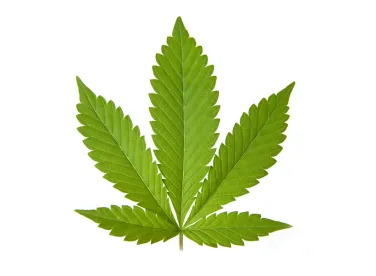On August 29, 2023, less than one year after President Biden’s directive to federal officials, including the U.S. Department of Health and Human Services (“HHS”) and the U.S. Attorney general, to conduct a review of cannabis’ classification under federal law,[1] HHS submitted a letter to the U.S. Drug Enforcement Agency (“DEA”) recommending a change in cannabis’ classification under the federal Controlled Substances Act (“CSA”).
According to sources citing confirmation from HHS and DEA, HHS’s letter noted that it had completed its analysis of the risks and benefits of cannabis use and recommended that the DEA loosen its restrictions on the drug. Specifically, HHS is recommending that the DEA reclassify cannabis from a Schedule I drug, the most restrictive tier under the CSA reserved for drugs with no accepted medical use and a high potential for abuse, to a Schedule III drug, a tier reserved for drugs with a moderate to low potential for physical and psychological dependence.
Despite cannabis illegality under U.S. federal law, according to the National Conference of State Legislatures, 23 states, the District of Columbia and two U.S. territories have legalized cannabis for adult recreational use and 38 states, the District of Columbia and three U.S. territories have legalized it for medical use. Notwithstanding the foregoing, the industry has been in a downward spiral due to, among other factors, overproduction, taxation, competition from the illicit market and lack of capital as investors have been exiting the sector.
While a recommendation that cannabis be reclassified as a Schedule III substance under the CSA is a positive indication that federal cannabis policy may be moving in the right direction, rescheduling cannabis would not federally legalize state-legal programs. Rescheduling cannabis as a Schedule III drug would, however, provide certain benefits, such as opening up more avenues to research cannabis, allowing cannabis businesses to secure banking services more freely, and permitting cannabis businesses to take certain credits and tax deductions under the Internal Revenue Code, without which cannabis businesses are subject to a much higher tax burden. The final determination regarding cannabis classification, nevertheless, rests with the DEA, and there is no timetable by which the agency needs to render its decision. The last time federal agencies were tasked with considering cannabis’s Schedule I status, they determined, in 2016, that Schedule I status was still appropriate.
While this is just the beginning of potential cannabis reform, this marks a monumental day for cannabis companies and enthusiasts alike as has been demonstrated by the price of shares of cannabis companies such as Canopy Growth (Nasdaq: CGC; TSX: WEED), Tilray Brands (Nasdaq: TLRY; TSX: TLRY), Cronos Group (Nasdaq: CRON; TSX: CRON), Curaleaf (OTCQX: CURLF; CSE: CURA), Green Thumb (OTCQX: GTBIF; CSE: GTII), Verano (OTCQX: VRNOF; CSE: VRNO), Cresco (OTCQX: CRLBF) TerrAscend (OTCQX: TSNDF; TSX: TSND), and Trulieve Cannabis (OTCQX: TCNNF; CSE: TRUL) among others, on the rise. It is also possible that if cannabis is reclassified at the federal level, national stock exchanges such as the New York Stock Exchange and Nasdaq may permit cannabis combines to list on such exchanges and that foreign cannabis companies may potentially be able to sell their products in the U.S. This is just the beginning and we look forward to monitoring and continuing to bring you the most up to date information on the DEA’s review of HHS’ recommendation.
FOOTNOTES
[1] Prior article on this Executive Order here.




 />i
/>i
